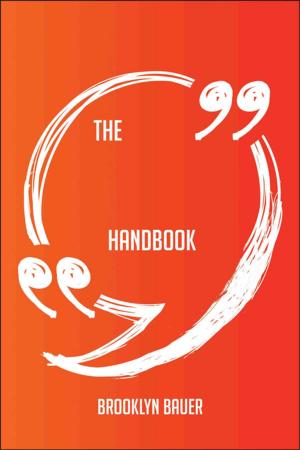Sign Language among North American Indians - The Original Classic Edition
Nonfiction, Reference & Language, Reference, Fiction & Literature| Author: | Mallery Garrick | ISBN: | 9781486418374 |
| Publisher: | Emereo Publishing | Publication: | October 24, 2012 |
| Imprint: | Emereo Publishing | Language: | English |
| Author: | Mallery Garrick |
| ISBN: | 9781486418374 |
| Publisher: | Emereo Publishing |
| Publication: | October 24, 2012 |
| Imprint: | Emereo Publishing |
| Language: | English |
Finally available, a high quality book of the original classic edition.
This is a new and freshly published edition of this culturally important work, which is now, at last, again available to you.
Enjoy this classic work today. These selected paragraphs distill the contents and give you a quick look inside:
While it appears that the expressions of the features are not confined to the emotions or to distinguishing synonyms, it must be remembered that the meaning of the same motion of hands, arms, and fingers is often modified, individualized, or accentuated by associated facial changes and postures of the body not essential to the sign, which emotional changes and postures are at once the most difficult to describe and the most interesting when intelligently reported, not only because they infuse life into the skeleton sign, but because they may belong to the class of innate expressions.
...It will be admitted on reflection that all oral languages were at some past time far less serviceable to those using them than they are now, and as each particular language has been thoroughly studied it has become evident that it grew out of some other and less advanced form.
...Some literalists have indeed argued from the Mosaic narrative that because the Creator, by one supernatural act, with the express purpose to form separate peoples, had divided all tongues into their present varieties, and could, by another similar exercise of power, obliterate all but one which should be universal, the fact that he had not exercised that power showed it not to be his will that any man to whom a particular speech had been given should hold intercourse with another miraculously set apart from him by a different speech.
... As, however, the languages of man are now recognized as extremely numerous, and as the very sounds of which these several languages are composed are so different that the speakers of some are unable to distinguish with the ear certain sounds in others, still less able to reproduce them, the search for one common parent language is more difficult than was supposed by mediæval ignorance.
...This is a conclusive proof that signs constitute a real language and one which admits of thought, for no one can learn a foreign language unless he had some language of his own, whether by descent or acquisition, by which it could be translated, and such translation into the new language could not even be commenced unless the mind had been already in action and intelligently using the original language for that purpose.
Finally available, a high quality book of the original classic edition.
This is a new and freshly published edition of this culturally important work, which is now, at last, again available to you.
Enjoy this classic work today. These selected paragraphs distill the contents and give you a quick look inside:
While it appears that the expressions of the features are not confined to the emotions or to distinguishing synonyms, it must be remembered that the meaning of the same motion of hands, arms, and fingers is often modified, individualized, or accentuated by associated facial changes and postures of the body not essential to the sign, which emotional changes and postures are at once the most difficult to describe and the most interesting when intelligently reported, not only because they infuse life into the skeleton sign, but because they may belong to the class of innate expressions.
...It will be admitted on reflection that all oral languages were at some past time far less serviceable to those using them than they are now, and as each particular language has been thoroughly studied it has become evident that it grew out of some other and less advanced form.
...Some literalists have indeed argued from the Mosaic narrative that because the Creator, by one supernatural act, with the express purpose to form separate peoples, had divided all tongues into their present varieties, and could, by another similar exercise of power, obliterate all but one which should be universal, the fact that he had not exercised that power showed it not to be his will that any man to whom a particular speech had been given should hold intercourse with another miraculously set apart from him by a different speech.
... As, however, the languages of man are now recognized as extremely numerous, and as the very sounds of which these several languages are composed are so different that the speakers of some are unable to distinguish with the ear certain sounds in others, still less able to reproduce them, the search for one common parent language is more difficult than was supposed by mediæval ignorance.
...This is a conclusive proof that signs constitute a real language and one which admits of thought, for no one can learn a foreign language unless he had some language of his own, whether by descent or acquisition, by which it could be translated, and such translation into the new language could not even be commenced unless the mind had been already in action and intelligently using the original language for that purpose.















